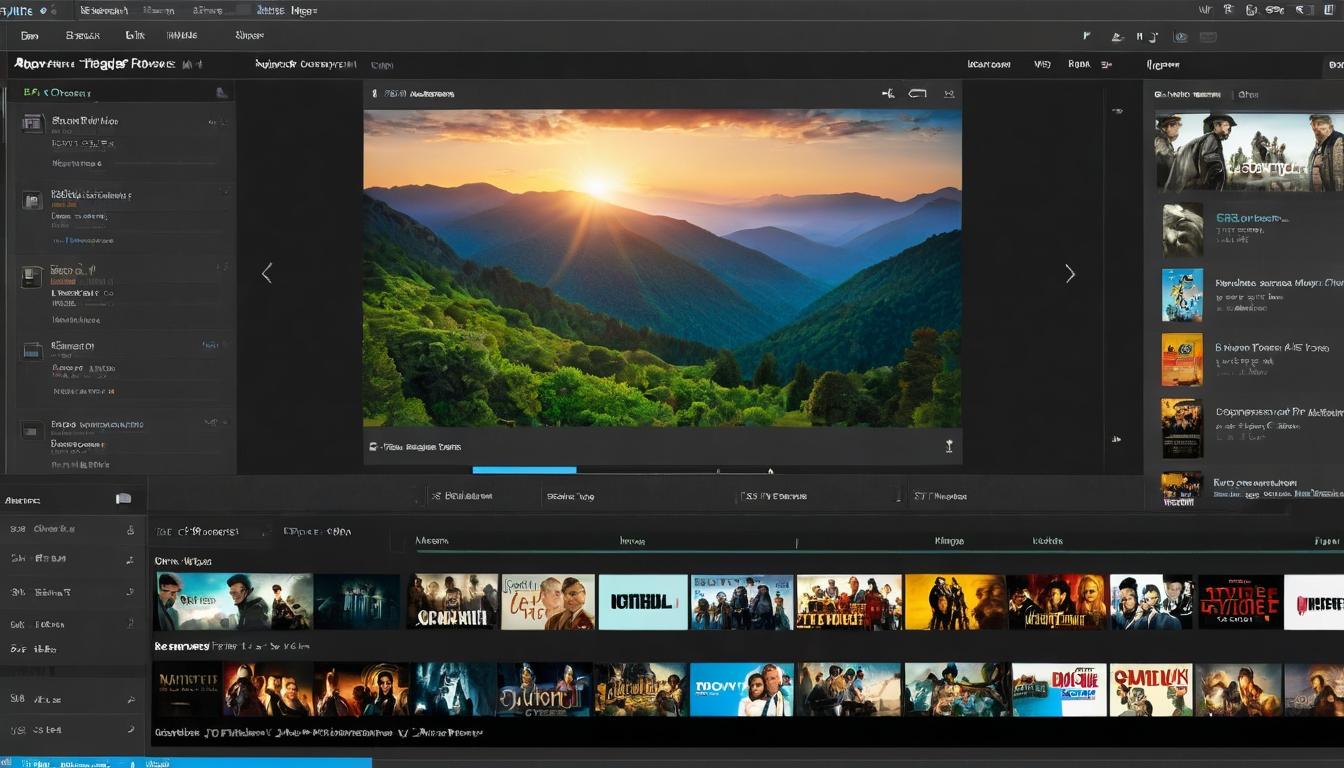In the digital age where every film ever made should theoretically be available at our fingertips, a curious phenomenon is unfolding. While streaming platforms boast about their massive libraries, cinephiles are discovering that some of the most important films in cinematic history are becoming harder to find than ever before. This isn't just about obscure art house films—we're talking about movies that won Oscars, defined genres, and influenced generations of filmmakers.
The disappearance of these cinematic treasures reveals a troubling truth about our current entertainment ecosystem. Streaming services, despite their promises of infinite choice, are actually narrowing our access to film history. The economics of streaming favor new content over preservation, algorithm-friendly films over challenging works, and mass appeal over artistic significance. What gets lost in this equation are the very films that built the foundation of modern cinema.
Take the case of Jonathan Demme's 1993 masterpiece 'Philadelphia.' While it remains available on some platforms, its availability fluctuates wildly. This landmark film, which brought mainstream attention to the AIDS crisis and earned Tom Hanks his first Oscar, should be permanently accessible. Yet it periodically vanishes from streaming catalogs, replaced by the latest forgettable action flick or romantic comedy. The pattern repeats across dozens of critically acclaimed films from the 70s, 80s, and 90s—films that defined their eras but don't fit neatly into today's algorithmic recommendations.
Meanwhile, mediocre films with strong data performance metrics enjoy permanent residency. A poorly reviewed Netflix original with high completion rates will likely remain available for years, while a cinematic masterpiece with slower viewer engagement gets rotated out. The system prioritizes what keeps subscribers scrolling over what might actually enrich their understanding of film. This creates a paradox where we have more content than ever before, yet less access to the films that matter most.
Part of the problem lies in licensing complexities that make older films expensive to maintain. When a streaming service licenses a film, they're essentially renting it for a limited time. The cost of renewing licenses for older films often doesn't justify the engagement numbers they generate. Newer films, especially original productions, don't carry these recurring costs. The result is a gradual erosion of our collective film heritage in favor of disposable content.
Film preservation organizations have sounded alarms about this trend for years. The Museum of Modern Art's film department has noted that while physical film preservation has improved dramatically, digital preservation faces new challenges. When a film exists only in digital form on streaming platforms, its availability becomes subject to corporate decisions rather than cultural importance. A film that doesn't perform well in its first month on a platform might never appear again.
This isn't just about nostalgia. These disappearing films represent crucial chapters in our cultural conversation. They document social changes, artistic innovations, and historical perspectives that newer films often lack. When 'Do the Right Thing' becomes harder to find while generic buddy comedies remain readily available, we're losing more than entertainment—we're losing cultural memory.
The situation becomes even more concerning when considering international cinema. Films that introduced American audiences to world cinema—Kurosawa's epics, Fellini's fantasies, Bergman's psychological dramas—are increasingly relegated to niche streaming services with smaller subscriber bases. Mainstream platforms focus on English-language content that performs well with their core demographics, creating a new form of cultural isolationism.
Even within Hollywood history, gaps are appearing. The films that defined New Hollywood—the risk-taking, auteur-driven works of the late 60s and 70s—are often missing from major streaming catalogs. These were the films that challenged conventions and expanded what cinema could be, yet they're being replaced by safer, more formulaic content designed to avoid alienating any segment of the audience.
What's particularly ironic is that many of these disappearing films are exactly the kind of content that streaming services claim to value—prestige titles that enhance their brand image. Yet when it comes to the bottom line, prestige takes a back seat to performance metrics. A film's cultural significance doesn't register in the data that drives these decisions.
Some independent streaming services are trying to fill the gaps, but they face their own challenges. Criterion Channel and similar platforms offer carefully curated selections of important films, but they operate as supplements rather than replacements for mainstream services. For the average viewer who relies on one or two major streaming subscriptions, entire swaths of film history remain inaccessible.
The solution may require a shift in how we think about film preservation in the digital age. Some advocates suggest treating certain films as cultural artifacts that should have guaranteed accessibility, similar to how public libraries ensure access to important books. Others propose creating digital film archives with public funding, ensuring that historically significant works remain available regardless of their commercial performance.
Until then, film lovers face the frustrating reality of having unprecedented access to mediocre content while losing touch with the masterpieces that made them love cinema in the first place. The streaming revolution promised to democratize film access, but it's creating new barriers to our cultural heritage. The films that challenged us, moved us, and changed how we see the world are quietly disappearing, replaced by content designed to never offend, never challenge, and never linger in the memory.
As viewers, we have more power than we realize. Supporting specialty streaming services, purchasing physical media of important films, and demanding better from mainstream platforms can help reverse this trend. The conversation needs to shift from how much content we have to what kind of content we're preserving for future generations. Because a world where great films disappear while mediocre ones thrive isn't just bad for cinephiles—it's bad for culture itself.
The streaming paradox: Why great films disappear while mediocre ones thrive

